.webp)
LEGO
%20lego%20slogan.webp)
1932-1950s
Ole Kirk Christiansen, a Danish carpenter, combined leg (play) and godt (well) to name his company during the Great Depression. The name and toy slogan would eventually be changed to LEGO. But the tagline set the brand up for its early success. The name was used throughout the period when the company started making wooden toys and when a fire destroyed his workshop twice in the 1940s. And was used for LEGO’s original plastic toys.
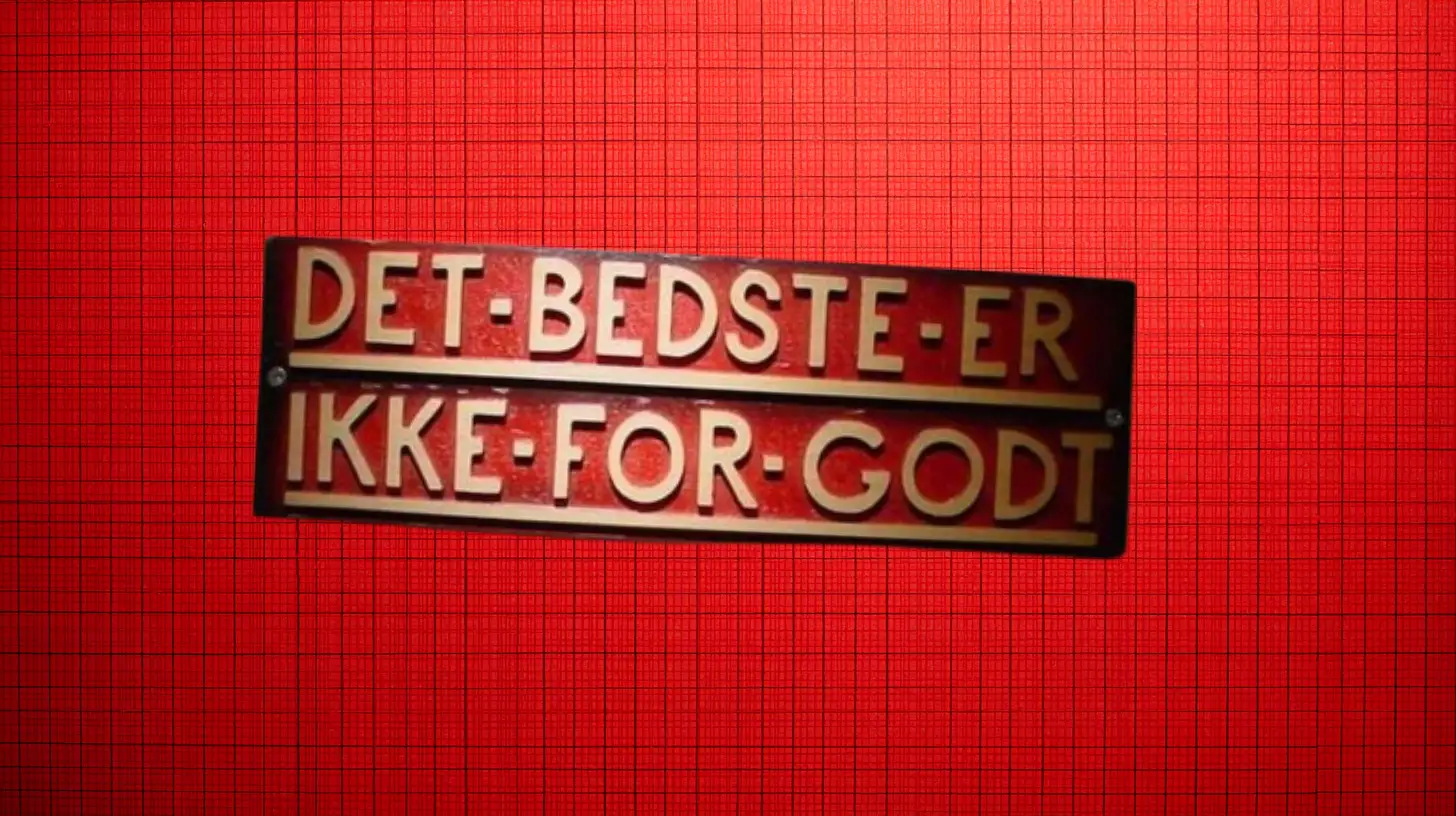
1936-Present
Christiansen hung this phrase above his workbench. When an employee skipped paint coats to save money, Christiansen made him strip and repaint everything. The rigorous standard, only the best is good enough has been LEGO’s official mantra ever since. That obsession explains why a brick from 1958 clicks perfectly with one made today.
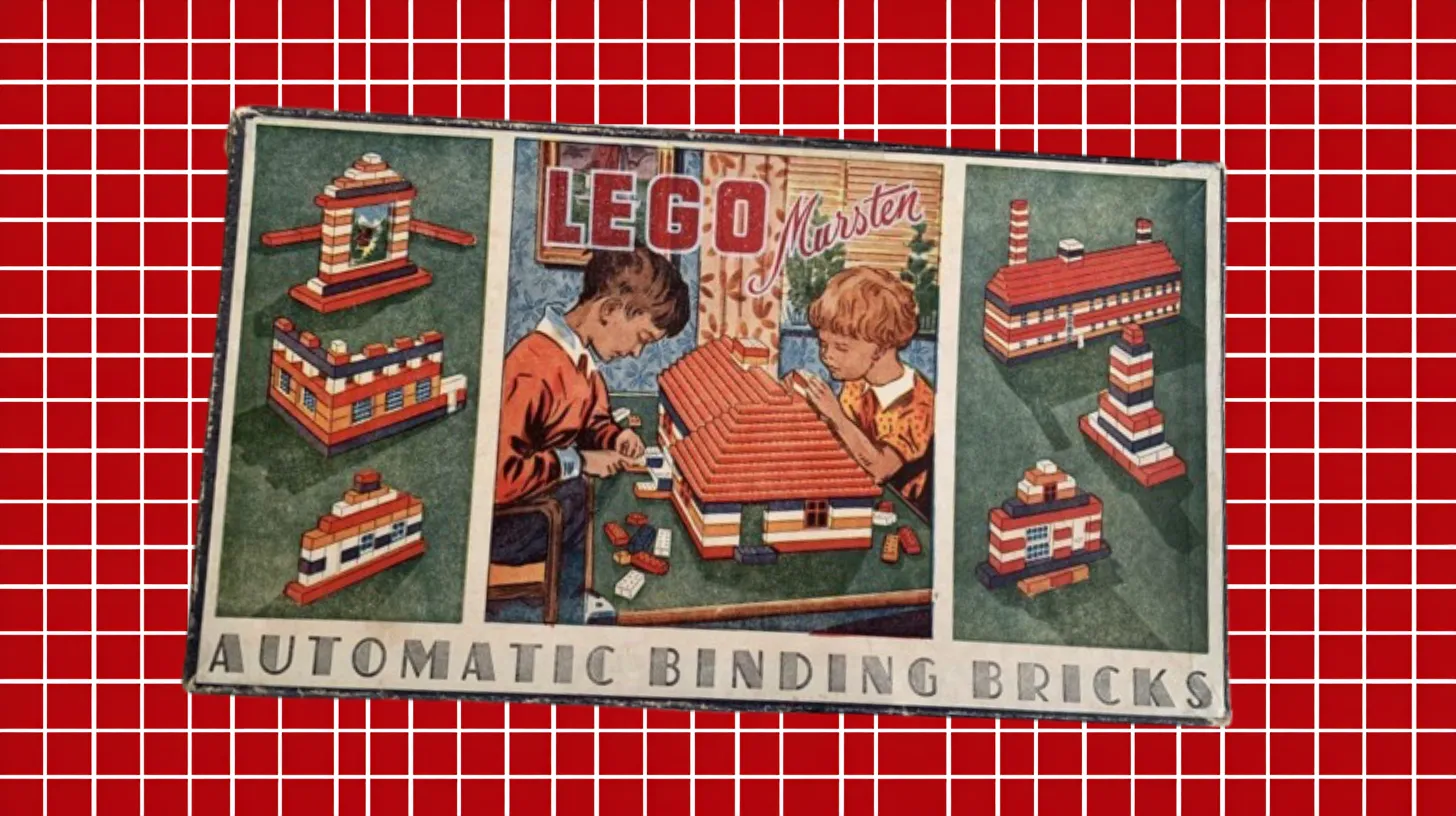
1949-1953
LEGO’s first plastic brick carried the Automatic Binding name. The first LEGO pieces had studs on top but no tubes inside. Kids built towers that toppled. Sales flopped. Godtfred Kirk Christiansen saw the flaw and spent years perfecting the design. This 1958 patent solved the problem, and it was so useful that it became an official slogan.

1955-1970s
In the 1950s, LEGO promised that every brick works with every other piece. Buy any set and combine it with what you already own. Most toy companies did the opposite, making incompatible products to force new purchases. LEGO chose backwards compatibility. Six 2x4 bricks connect in 915,103,765 ways. That system of play became gospel and an iconic slogan that other toy brands couldn’t match.
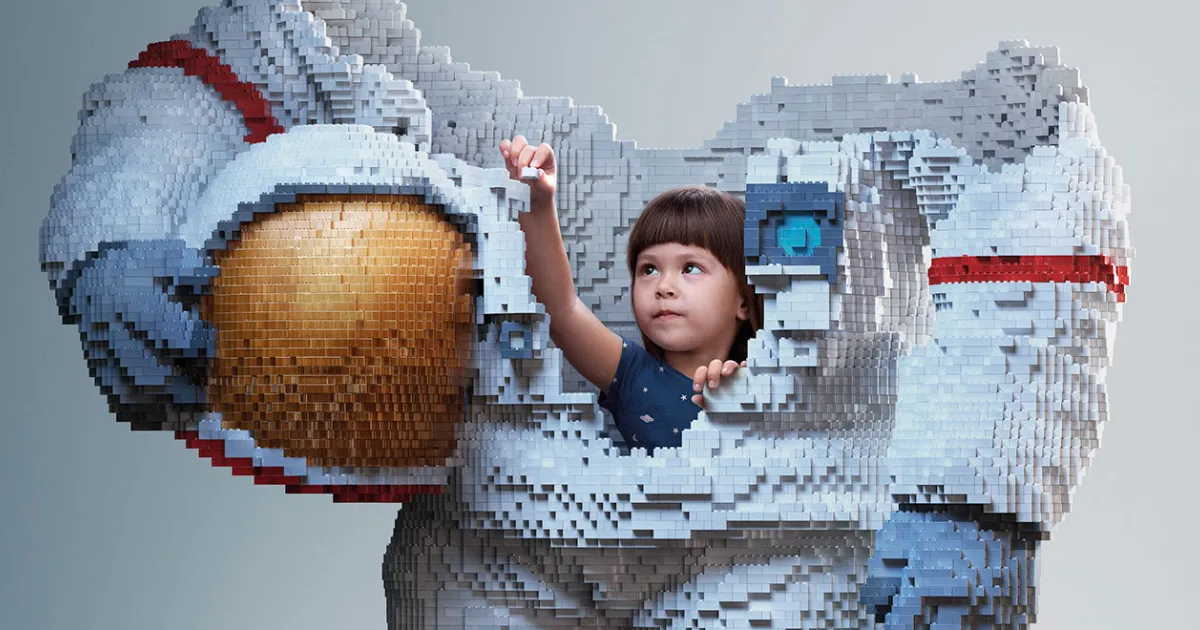
1960s-1970s
LEGO expanded into themed sets in the ’60s with a bold claim: build anything you can imagine. LEGOLAND Billund opened in Denmark in 1968. It drew 625,000 visitors in year one. The park displayed sculptures made from millions of bricks. The company added wheels, windows, and figures with movable arms. The classic smiley-face minifigure appeared in 1978, when LEGO realized people wanted characters.
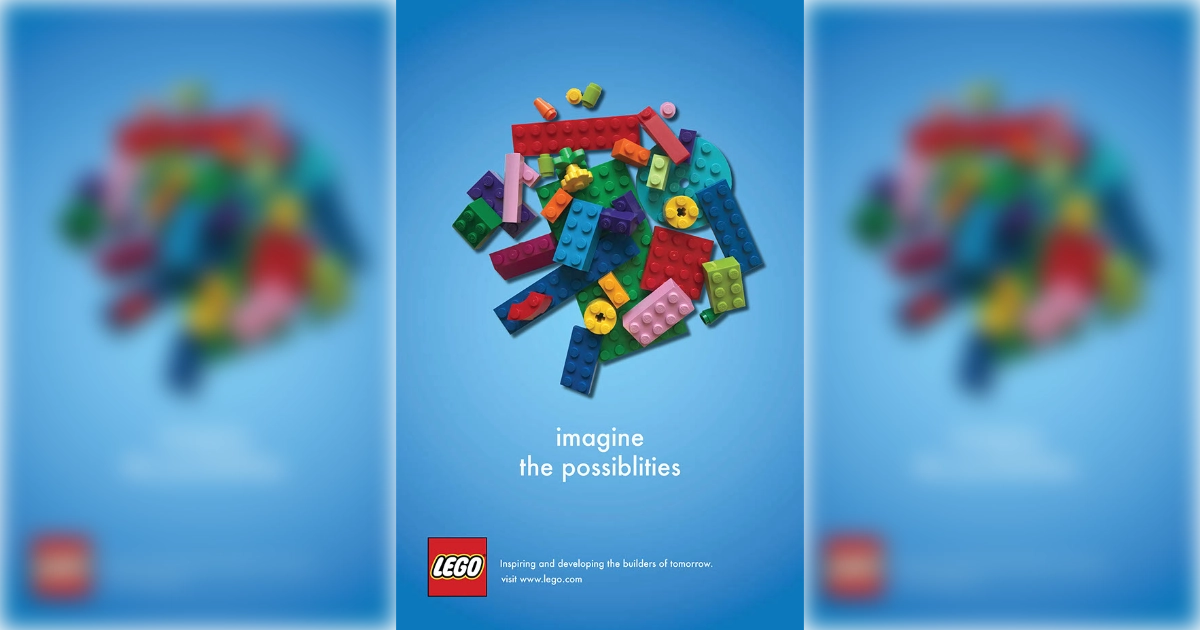
1990s
In the 1990s, LEGO moved into electronics and video games. LEGO Island, its first computer game, launched in 1997. LEGO Mindstorms brought programmable robots developed with MIT. Then came Star Wars sets in 1999. That partnership saved the company from bankruptcy. Star Wars became the best-selling line almost overnight, hitting 20% of total sales in some years. Just imagine the possibilities, LEGO said, to market their video games.
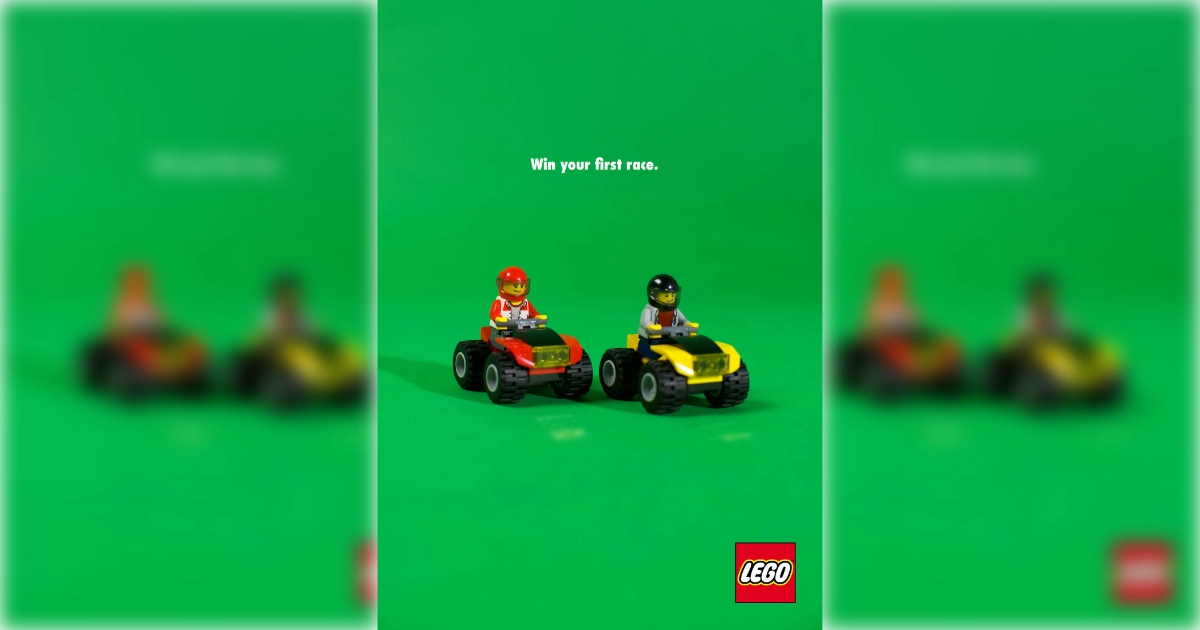
2002
LEGO released this slogan during its darkest hour. Between 1998 and 2004, the company lost $800 million. It had scattered into theme parks, clothing, video games, and jewelry. Because it was stretched so thin, LEGO CEO Jørgen Vig Knudstorp slashed product lines from 12,900 pieces to 6,500. He sold the LEGOLAND parks. He refocused on bricks. The message to fans: play on. By 2015, LEGO was the world’s most valuable toy company.
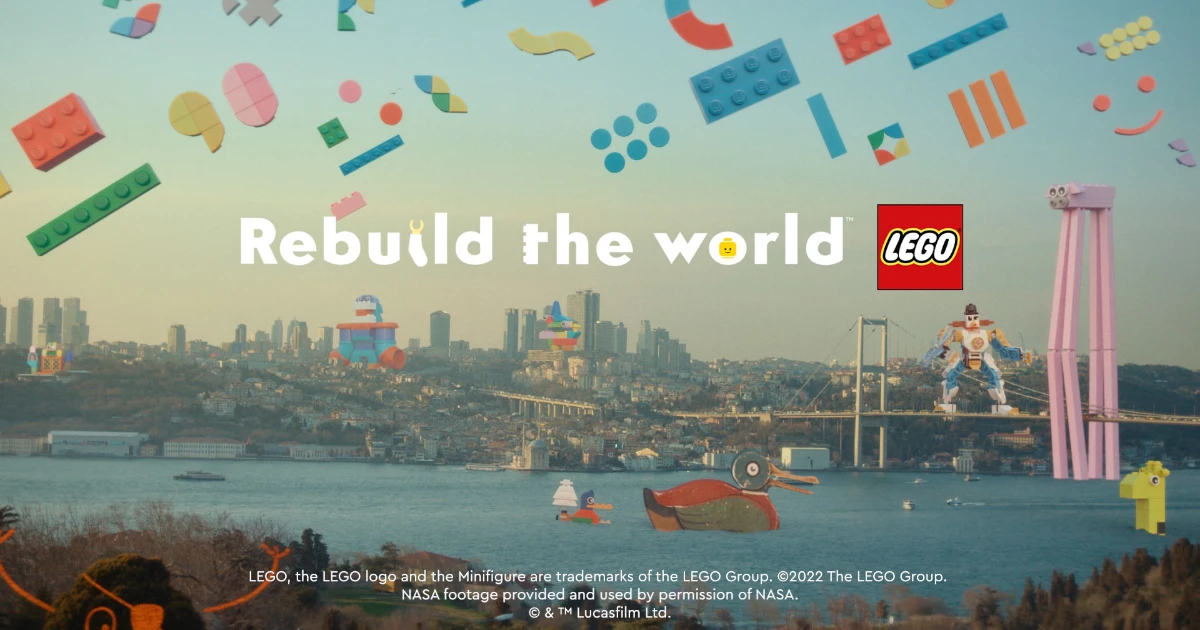
2019-Present
LEGO’s current campaign opens with a hunter chasing a rabbit through a LEGO landscape. Characters rebuild their surroundings constantly. The rabbit escapes through creativity. Rebuild the world, LEGO says as its most recent slogan. The company now balances traditional building with platforms like LEGO Masters, which launched in 2020. It committed to sustainable materials by 2030. The research budget: $400 million. Some pieces now use plant-based plastic from sugarcane. Yes, they are currently rebuilding the world.